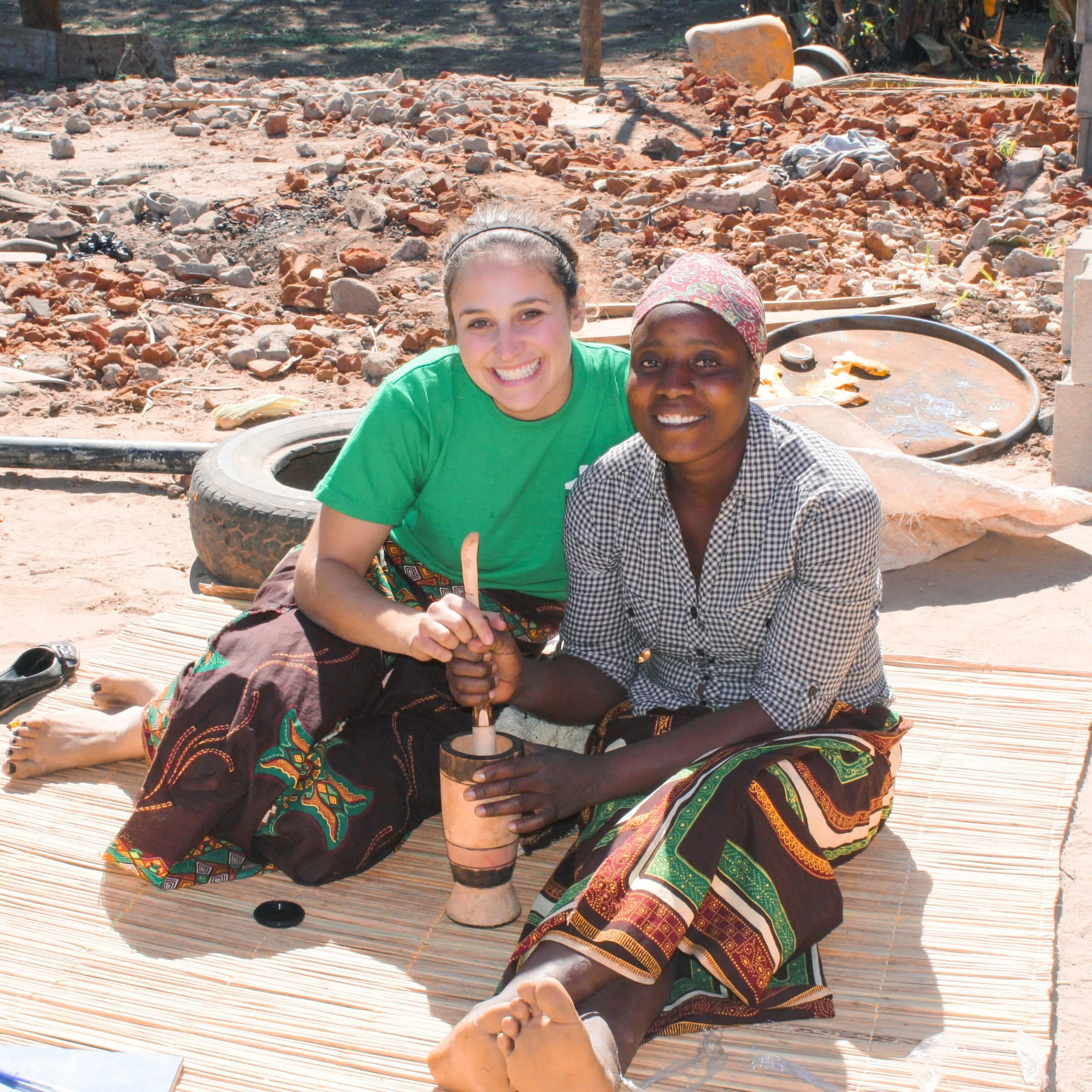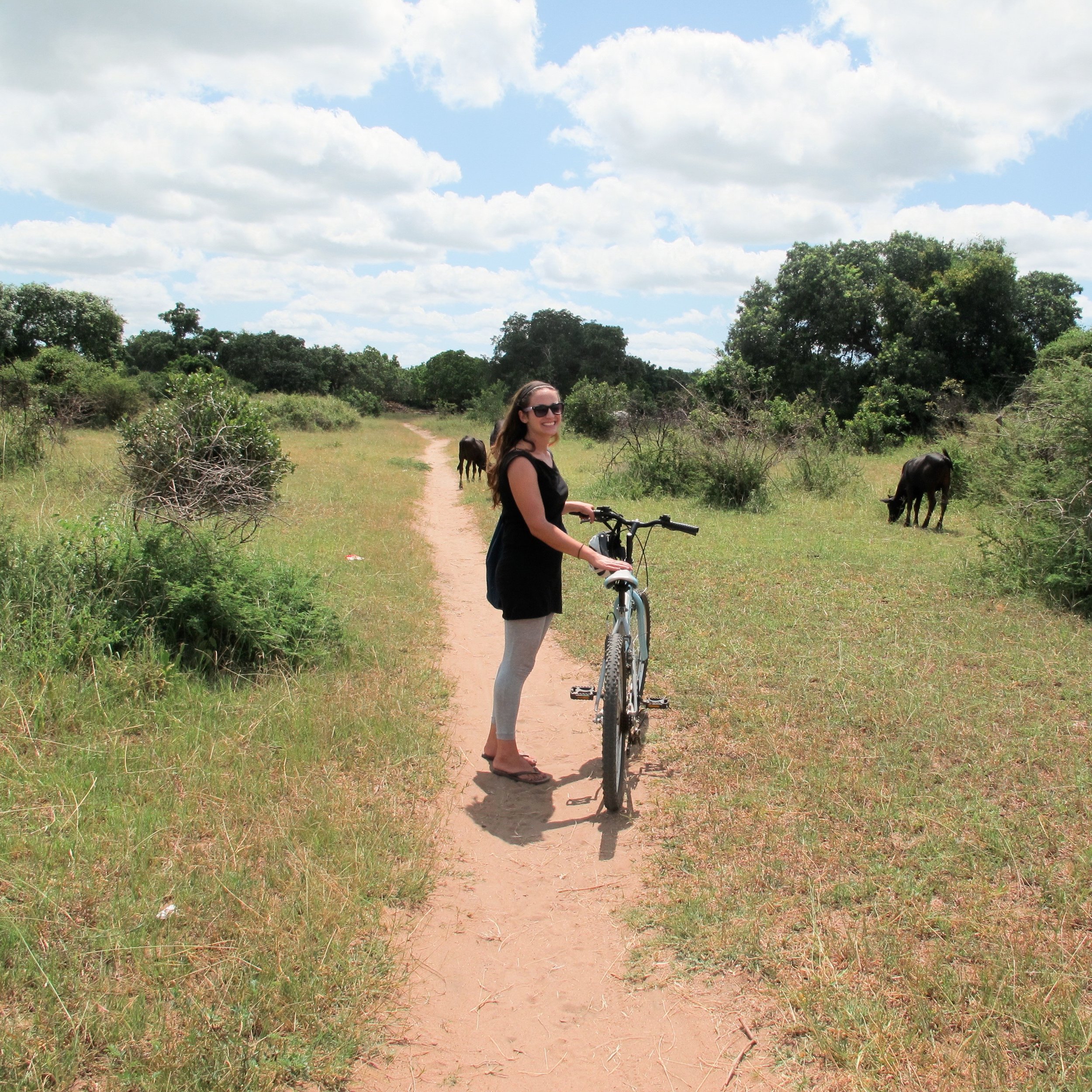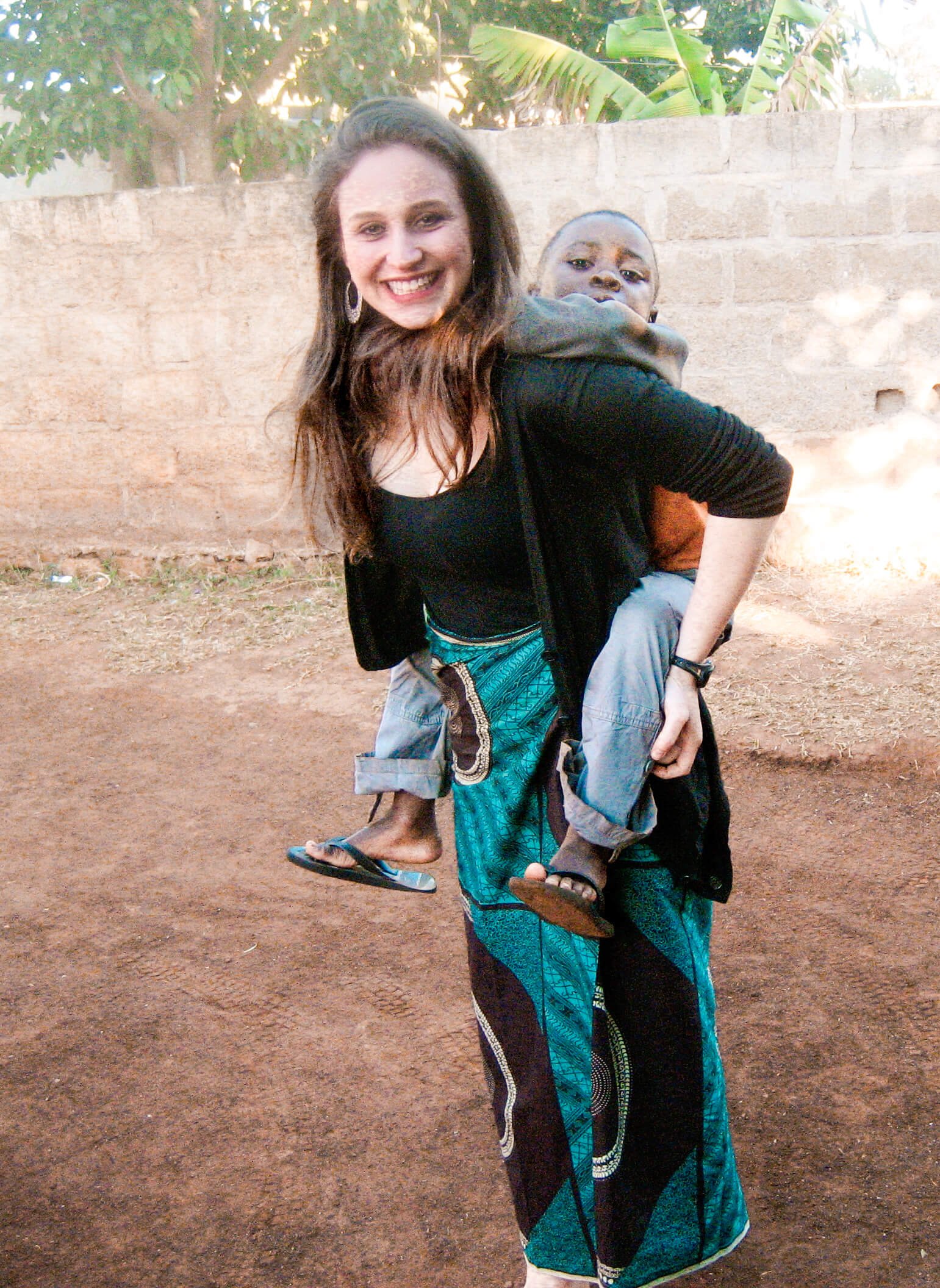Top 10 things I learned in Mozambique
01. Live by the rhythm of the sun.
With no electricity in Chivonguene village, I learned to wake up when the sun came up and go to bed when the sun set. The pace of life was so much slower. No staying up late to work or technology to distract. It was simple. And I loved it.
02. Always make enough for guests.
In a remote community like Chivonguene, people would share with you the little that they had. There was always enough to go around and everyone always had a seat at the table. Guests were treated extra special, meaning they would kill the one chicken they had just for your visit and always gave you the best seat in the house.
03. Resilience and self-reliance is empowering.
Living in a small village without electricity or running water made me more resilient and self-sufficient. The community taught me how to grow my own garden, make a fire, cart water, wash my clothes by hand, dry them on the nearby cactus and even how to kill and prepare my own food. It is true, when you sacrifice an animal for nourishment, cooking, cleaning and preparing each and every part you appreciate it so much more.
04. You are capable of so much more than you think!
After three years in East Africa, I can confidently say that I can grind corn with a large mortar and pestle “moajeira”, make peanut butter the same traditional way, and can sterilize the jars to store my homemade papaya, tomato or banana jam. When given the space and opportunity, you can truly accomplish so much more than you ever thought possible.
05. Leave it between them and God.
Percina and I were walking in Chókwè when an elderly woman approached us asking for money to pay for transportation to get to the hospital. Percina quickly handed her the money she asked for without even thinking twice. Noticing the hospital right around the corner, I asked her why she couldn’t just walk there and was unsure of the woman’s motives. Percina simply explained that she chose to trust the woman and the rest is between her and God.
06. Speaking the local language changes everything!
While Mozambique’s national language is Portuguese, the country also has 26+ local languages! The small rural village where I lived (3.5 hours outside the capital city) the community speaks a local language called Changana. At first, I found it challenging to successfully integrate into Mozambican life, so I chose to work with a private tutor to help me practice Changana. After a few sessions I started comfortable greeting people saying: “Wa hanya? Unjani? Hi wena mani vito?” (How are you? What’s your name?) and the community members started smiling and immediately felt more comfortable with me! It broke the ice and they started teaching me more and more, which ultimately helped build trust and a stronger relationship. Without learning the local language, I don’t know if I could have ever started Kurandza.
07. When technology is scarce, you are more in touch with the spiritual world.
While living in Chivonguene, there was no electricity or running water, and my phone would sometimes go days without being turned on because it was too cloudy for my solar charger to work. I soon realized that this separation from technology allowed space for people to be more in touch with spirituality– both sides, the dark and the light. Community members would go to church, pray fervently, fast, and feel God’s presence. Many locals would also go to curandeiros or witch doctors to play with black magic. And only those who played with the black magic back would be affected by it. And those who stayed close to God in prayer would be safe. Everything in the spiritual world seemed so much stronger, like there was a direct line because of the lack of technology muddying it up.
08. Be careful when complimenting someone…
…because you may end up with extra clothes, earrings, and keepsakes! When I first started working in town, I made friends with one of the hospital workers who then invited me over one afternoon. I complimented her neighbor on her beautiful capulana (a traditional wax-print African cloth) and she happily replied, oh thank you! We then shared the most friendly lunch together. All of sudden when I was saying goodbyes, her neighbor ran out in the mid-day heat to grab something from the clothes line to give me. I realized it was the CAPULANA she was just wearing. She had taken it off, washed it quickly and hung it out to dry all while we were all talking and eating. This taught me to be careful when complimenting a Mozambican but also to not be so attached to material things and to put more of an emphasis on bringing joy to someone else.
09. Life is fragile.
When you live in a small rural village in the developing world where over 20% of the population is HIV+, and Malaria is an everyday occurrence, you remember how precious life is. Nearly every week there is a funeral for someone who got in a car accident, passed away from AIDs, cerebral malaria, or childbirth. Working in the maternal and infant health department of the hospital, I saw babies that didn’t make it during the birthing process as many times there would be only a janitor aiding the women during childbirth. While you may get used to hearing about death, it doesn’t make it easier. I now value life higher and try to live every moment to the fullest.
10. The power of community.
In the rural areas of Mozambique, if you need something, all you have to do is ask your neighbor! Having guests over and you don’t have enough chairs for everyone to sit at the table? Ask your neighbors and you will soon have a table (or a few different mismatched tables put together) outside with several chairs of all different colors and materials– black, blue or green plastic, plus sturdy wood ones, maybe even some older metal ones. It’s beautiful and creates a unique scene. Even if you are baking a cake and need extra eggs, ask your neighbor and they will happily give you what you have! And then tomorrow, they may ask you for an extra onion or tomato for their feijoada and you are happy to return the favor! This is a beautiful communal culture where everyone helps each other out.




